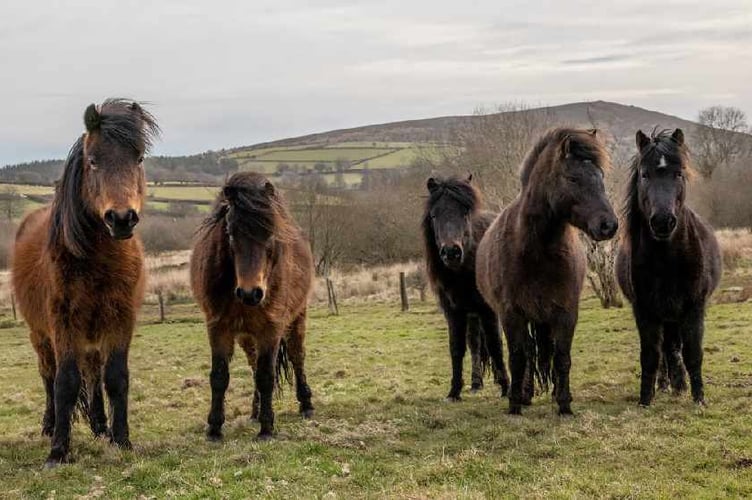Campaigners are calling on MPs to help influence policymakers who may be able to save Dartmoor ponies from extinction, writes Alison Stephenson.
The Dartmoor Hill Pony Association (DHPA) says pony numbers have dropped from 7,000 to 900 over the last 25 years and must not be allowed to decline further.
The association wants to see grants made to moorland farmers to graze and look after ponies.
Chair of the DHPA Charlotte Faulkner said good progress had been made in getting the Department for Environment, Food and Rural Affairs (Defra) to recognise the importance of the nation’s only semi-wild pony population, but more action is needed.
The breed now appears on a register of native breeds at risk and was also referenced in a review last year chaired by Devon landowner and Lord Lieutenant of Devon David Fursdon on protected site management on Dartmoor as invaluable for conservation grazing and genetically important.
Mrs Faulkner said new support grants which would pay farmers and landowners to look after the ponies and giving them the same status as cattle haven’t yet been implemented.
“We need the ear of the policy makers,” she said. “They are just not getting it. Defra and Natural England on the ground have been working closely with us and want to support us. They have done good job till, now but at the last hurdle they have fallen.
“It is time that questions were raised in Parliament by MPs if we want to see ponies on the moor in the future.”
Mrs Faulkner said the association has worked hard to get Defra to accept ponies to be taken into account in payments made to landowners for managing the moor.
The ‘cattle and pony grazing supplement’ and ‘native at risk’ supplement were ways of funding the animals to ensure they stay on the moor as being vital for biodiversity, managing the land and for tourism.
She said previous grazing agreements paid people for keeping cattle but not ponies, and so to get an income farmers and landowners would put cattle out on common land rather than ponies.
Twenty years ago many ponies were culled for this reason, a time Mrs Faulkner describes as “very distressing”.
The ponies on the moor now are owned by people who consider them as part of their culture and can’t bear to see them disappear.
“We get more desperate knowing what numbers we have left and what might happen,” she said. “Everything takes such a long time, when it doesn’t have to. We need to press now for action so the numbers do not drop any more.”
An online petition to save the ponies started earlier this year has been signed by more than 100,000 people.
Simon Lee, Natural England’s principal officer for Devon, Cornwall and the Isles of Scilly said: “Ponies have a vital ecological and cultural role on the sustainable management of Dartmoor and we are working with partners, including the Dartmoor Hill Pony Association, to ensure the optimal numbers of Dartmoor ponies remain for generations to come.”




